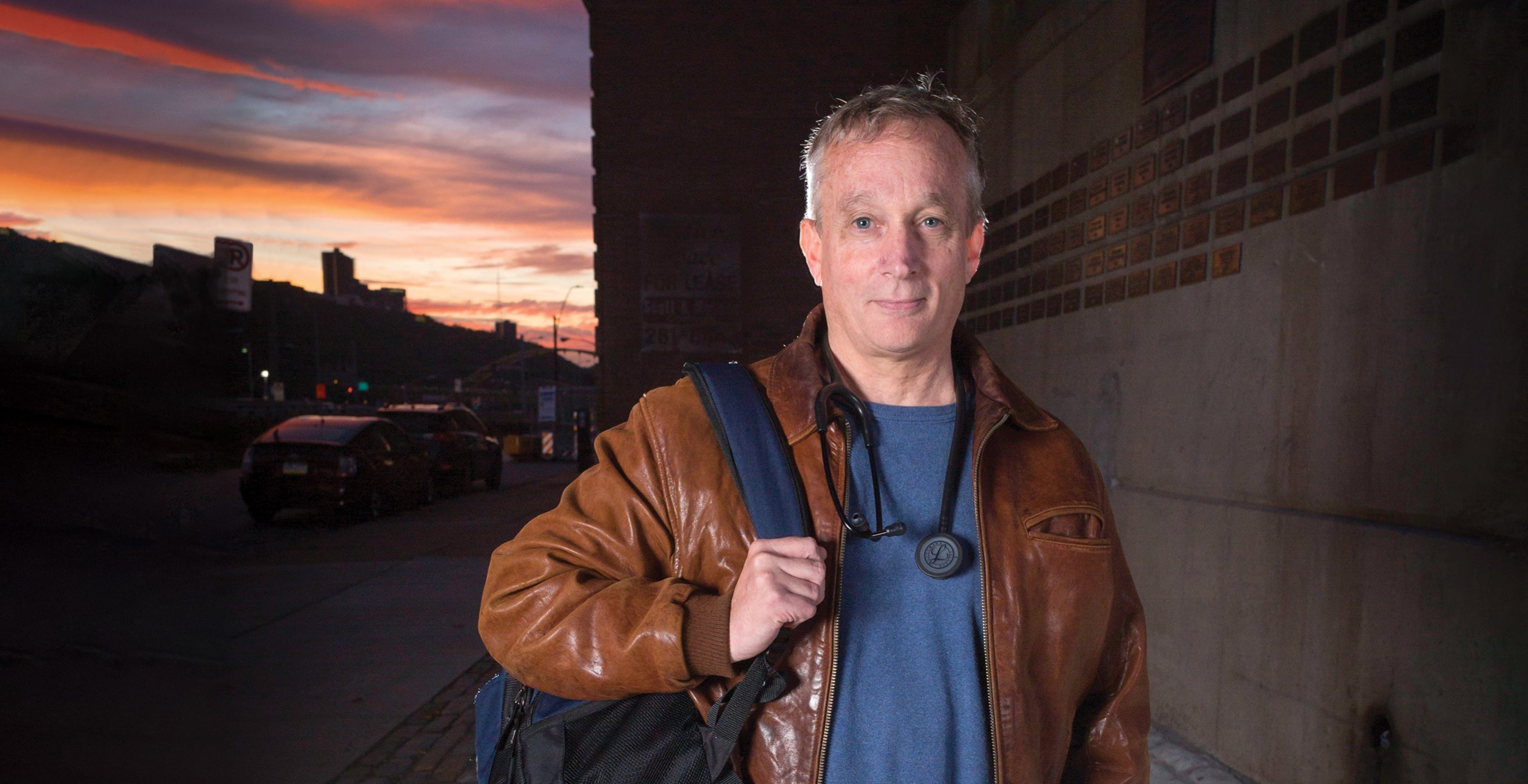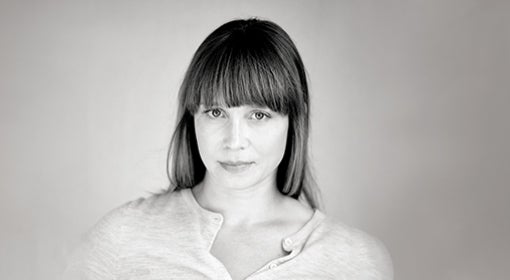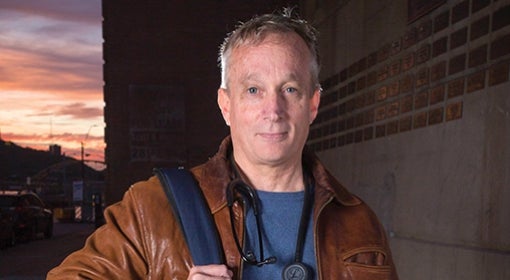On a cold day in mid-April, Jim Withers and his team hike under the budding branches of silver maples and sycamores. The group is suited up in medical masks and gloves, their bright blue protective gowns billowing in the wind. Striding through the woods alongside the river, they look like deep-space visitors stumbling onto the wrong movie set.
They are headed to one of six homeless encampments they will visit today with Pittsburgh Mercy’s Operation Safety Net—a revolutionary outreach program that Withers, a physician and the program’s medical director, founded with the nonprofit health and wellness provider. He and his team are making “street rounds,” providing medical care and social services to people who live outdoors. It’s a practice called street medicine, an emerging field that Withers has helped pioneer over the past 28 years.
The COVID-19 pandemic has brought a new urgency and extra precautions to their work. At the riverside site, campers have reported coronavirus-like symptoms. Withers (MED ’84) and his team want to provide testing and help the group transition into temporary safe haven housing provided by the county.
To be effective, however, the team must be thoughtful. The camp is a home for the men who live there, and the health care workers, with their strange garb, worrisome medical tests and quarantine instructions, are their guests. Without showing respect and building trust, the group could be turned away.
But Withers and his team are welcomed in. That’s because they have spent years forging deep-rooted relationships. Today, their efforts could benefit the entire region’s public health and well-being.
Street medicine is a movement fueled in large part by Withers and his tireless advocacy. There are now more than 100 programs around the globe, and the Street Medicine Institute, founded by Withers in 2005, provides them with assistance. Now, with COVID-19 touching every corner of the world, street medicine teams able to forge relationships with the most vulnerable populations are uniquely positioned to help mitigate the pathogen’s spread.
When the virus first hit, teams quickly adapted, sharing their findings with one another over social media. From Detroit to Norway, Los Angeles to Nigeria, street clinicians spread practical and lifesaving information: how to craft makeshift masks, for instance, or how to properly space shelter beds.
For Withers and his team, this meant decisive preventative action for Pittsburgh’s homeless communities. They quickly installed portable sinks and restrooms within homeless campsites around the city. By late March, they were providing testing for anyone exhibiting COVID-19 symptoms. They are also partnering with local nonprofits to provide telehealth resources to those living in shelters.
With Withers, everything comes down to relationships.
Earlier in the day, in another camp across town, the doctor sidled up to a man fiddling with kindling beside a campfire. He was young and new to the camp. Lost his job, he said. Lost his home. He was frustrated. His phone isn’t working. He can’t get ahold of his stimulus check. Withers listened, letting him vent.
“I’m not the type of person to live like this,” the man said.
“You know,” Withers said, “where you are isn’t who you are.”
The phrase, uttered many times before, cuts to the core of what Withers intends street medicine to provide. It’s about connecting with neighbors and offering hope, especially when they are at their lowest, and even when a pandemic threatens to push us further apart.
Cover image: Jim Withers
This article appears in the Summer 2020 edition of Pitt Magazine.





